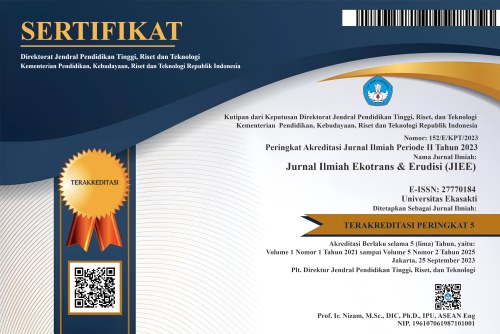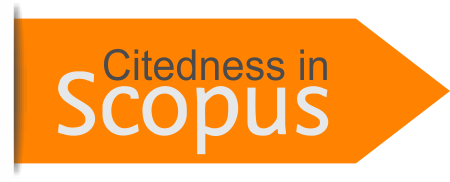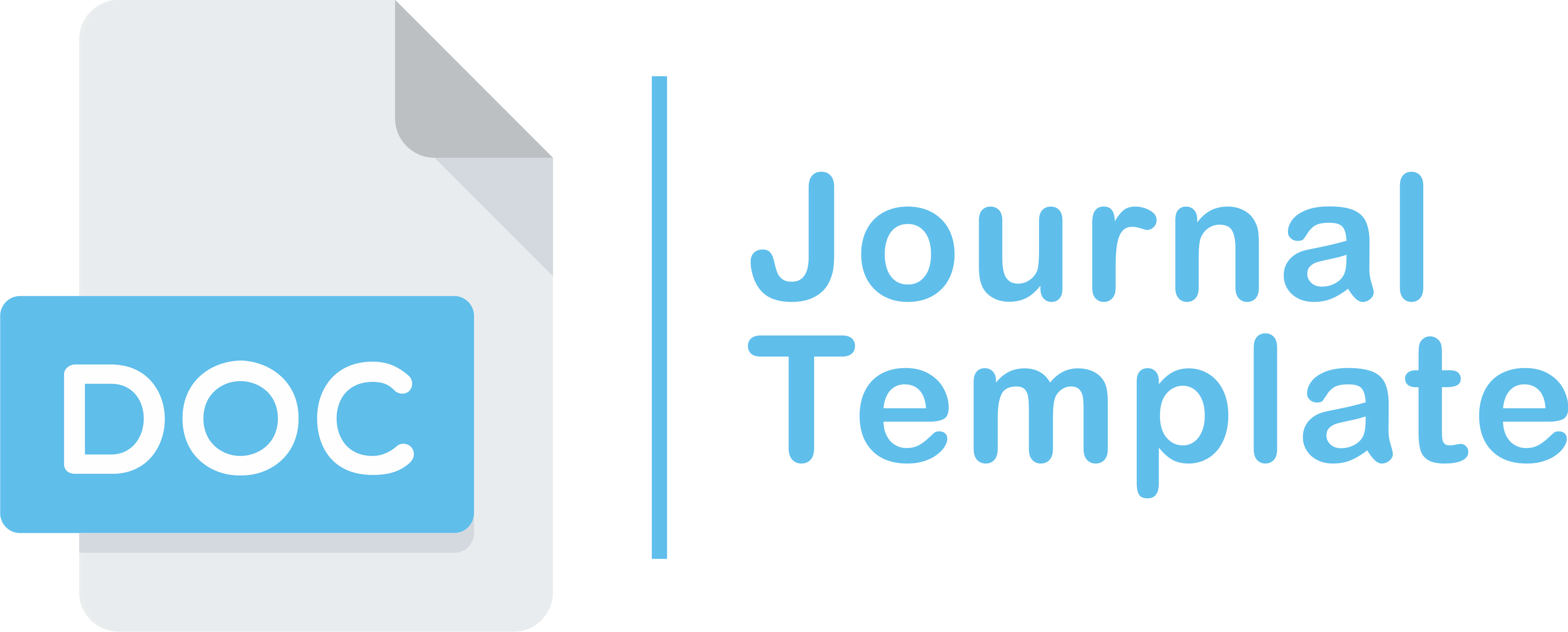Kesiapan Berwirausaha Warga Binaan Lembaga Pemasyarakatan Wanita Melalui Pendidikan Kewirausahaan Dan Self-Efficacy
DOI:
https://doi.org/10.69989/ar0k4823Kata Kunci:
entrepreneurship education, self-efficacy, entrepreneurial readinessAbstrak
Penelitian ini bertujuan untuk menguji pengaruh pendidikan kewirausahaan dan self efficacy terhadap kesiapan berwirausaha warga binaan Lapas Perempuan Kelas IIA Martapura. Dengan jumlah sampel sebanyak 86 individu warga binaan yang telah mengikuti pendidikan atau pelatihan terkait kewirausahaan di Lapas Perempuan Kelas IIA Martapura. Hipotesis pertama menyatakan bahwa pendidikan kewirausahaan berpengaruh signifikan terhadap kesiapan berwirausaha dengan t hitung sebesar 5,319 > 1,666 pada tingkat signifikansi 0,000 < 0,05. Hipotesis kedua menyatakan bahwa self efficacy berpengaruh signifikan terhadap kesiapan berwirausaha dengan t hitung sebesar 4,564 > 1,666 pada tingkat signifikansi 0,000 < 0,05. Hipotesis ketiga menyatakan bahwa pendidikan kewirausahaan dan self efficacy secara bersamaan berpengaruh signifikan terhadap kesiapan berwirausaha dengan F hitung sebesar 41,444 > F tabel 3,09 pada tingkat signifikansi 0,000 < 0,05. Penelitian ini menunjukkan bahwa pendidikan kewirausahaan dan self efficacy memiliki dampak positif dan signifikan terhadap kesiapan berwirausaha warga binaan Lapas Perempuan Kelas IIA Martapura
Unduhan
Referensi
Adeniyi, A. O., Derera, E., & Gamede, V. (2022). Entrepreneurial self-efficacy for entrepreneurial readiness in a developing context: A survey of exit level students at TVET Institutions in Nigeria. Sage Open, 12(2), 21582440221095060.
Agustina, T. (2023). Entrepreneurial Mindset as Personal Characteristic Capital to Compete in the Era of Society 5.0. Tec Empresarial, 18(2), 1115–1127.
Agustina, T., Jatmika, D., Sampurnawati, S., & Djuarni, W. (2023). Entrepreneurship, Skills for Santri to Become Job Creators. International Journal of Social Science, Education, Communication and Economics (SINOMICS JOURNAL), 2(3), 701–718.
Alfabeta, S. (2003). Belajar dan Faktor-faktor yang Mempengaruhinya. Jakarta. PT. Rineka Cipta.
Alma, B. (2005). Kewirausahaan.
Apiatun, R., & Prajanti, S. (2019). Peran Self-Efficacy Sebagai Variabel Intervening Pengaruh Pengetahuan Kewirausahaan dan Pengalaman Prakerin Terhadap Kesiapan Berwirausaha. Economic Education Analysis Journal, 8(3), 1163–1181. https://doi.org/10.15294/eeaj.v13i2.17051
Ariliusra, A. (2023). Analisis Pengaruh Self Efficacy Terhadap Subjective Wellbeing Dimediasi Oleh Organizational Crisis Preparedness Pada UKM di Sumatera Barat. Jurnal Ilmiah Ekotrans & Erudisi, 3(1), 13–21.
Aspiannor, A. (2022). The Effect of Training and Application of Disciplinary Sanctions on Work Discipline of Civil Service Police Unit. Hut Publication Business and Management, 1(3), 9–15.
Bandura, A., & Wessels, S. (1994). Self-efficacy (Vol. 4). na.
Bharata, W. (2019). Pengaruh Pendidikan Kewirausahaan dan Motivasi Usaha terhadap Minat Berwirausaha (Studi pada Mahasiswa Fakultas Ekonomi Universitas Muhammadiyah Ponorogo). Capital: Jurnal Ekonomi Dan Manajemen, 2(2), 98. https://doi.org/10.25273/capital.v2i2.3985
Blegur, A., & Handoyo, S. E. (2020). Pengaruh Pendidikan Kewirausahaan, Efikasi Diri Dan Locus Of Control Terhadap Intensi Berwirausaha. Jurnal Manajerial Dan Kewirausahaan, 2(1), 51. https://doi.org/10.24912/jmk.v2i1.7424
Fachrurrozi, K., Fahmiwati, Hakim, L., Aswadi, & Lidiana. (2021). Pengaruh Kemiskinan dan Pengangguran terhadap Kriminalitas di Indonesia di Tahun 2019. Jurnal Real Riset, 3, 2. https://doi.org/10.47647/jrr
Gerba, D. T. (2012). Impact of entrepreneurship education on entrepreneurial intentions of business and engineering students in Ethiopia. African Journal of Economic and Management Studies.
Hendrayanti, S., & Fauziyanti, W. (2021). Kontribusi minat berwirausaha dan self efficacy terhadap kesiapan berwirausaha di ERA Revolusi Industri 4.0 Silvia. JURNAL STIE SEMARANG, 3(3), 103–111.
Isrososiawan, S. (2013). Peran Kewirausahaan Dalam Pendidikan. Society, 4(1), 26–49.
Khairinal, K., & Zuhri, S. (2019). kewirausahaan. Salim Media Indonesia (Anggota IKAPI).
Melyana, I. P., Rusdarti, & Pujiati, A. (2014). Pengaruh Sikap dan Pengetahuan Kewirausahaan terhadap Kesiapan Berwirausaha Melalui Self-Efficacy. Journal of Economic Education, 3(2), 8–13.
Mulia, R. A., & Saputra, N. (2020). Analisis Faktor-Faktor Yang Mempengaruhi Kesejahteraan Masyarakat Kota Padang. Jurnal El-Riyasah, 11(1), 67–83. https://doi.org/10.24014/jel.v11i1.10069
Mulia, R. A., & Saputra, N. (2021). Systematic Literature Review: Determination of Government Policy in Health and Education Development for Improved Human Capital. Jurnal EL-RIYASAH, 12(1), 92–107.
Munib, A., & others. (2004). Pengantar ilmu pendidikan. Semarang: UPT MKK UNNES.
Nastiti, N. D. (2019). Pengaruh Motivasi dan Pengetahuan Kewirausahaan Terhadap Kesiapan Berwirausaha Mahasiswa Program Studi Administrasi Bisnis Fakultas Ilmu Sosial dan Ilmu Politik Universitas Mulawarman. eJournal Administrasi Bisnis. Journal Administrasi Bisnis, 7 (1), 51, 63.
Nazirwan, N., Tovalini, K., & Andini, S. (2023). Implementation of the Silungkang Songket Development Program with Natural Dyeing by the Koperindag Department in Sawahlunto City. Jurnal Ilmiah Ekotrans & Erudisi, 3(2), 95–111.
Nitisusastro Mulyadi, H. (2012). Perilaku Konsumen Dalam Perspektif Kewirausahaan. Cetakan Kesatu. Alfabeta, CV. Bandung.
Pramono, W., & Mulia, R. A. (2023). Village Government Policy in Reducing Poverty. Jurnal Ilmiah Ekotrans & Erudisi, 3(2), 112–121.
Pratomo, R. P. K., Mulyadi, H., & Utama, D. H. (2018). Pengaruh Pembelajaran Kewirausahaan Terhadap Kesiapan Berwirausaha Siswa Kelas Xii Pastry Sekolah Menengah Kejuruan Negeri 9 Bandung. Journal of Business Management Education (JBME), 3(2), 67–77. https://doi.org/10.17509/jbme.v3i2.14216
Puozzo, I. C., & Audrin, C. (2021). Improving self-efficacy and creative self-efficacy to foster creativity and learning in schools. Thinking Skills and Creativity, 42, 100966.
Samuel, R. S. (2011). A comprehensive study of education. PHI Learning Pvt. Ltd.
Sehabuddin, A., Murniawaty, I., & Widiyanto. (2020). Analisis Empiris Faktor-Faktor Yang Mempengaruhi Kesiapan Berwirausaha Warga Binaan Lembaga Pemasyarakatan. EQUILIBRIUM : Jurnal Ilmiah Ekonomi Dan Pembelajarannya, 8(1), 28. https://doi.org/10.25273/equilibrium.v8i1.5885
Soemanto, W. (2006). Psikologi pendidikan: Landasan kerja pemimpin pendidikan (Cetakan ke 5). Jakarta: Rineka Cipta.
Sugiyono, D. (2010). Memahami penelitian kualitatif.
Sukardjo, M., & Ukim, K. (2009). Landasan Pendidikan. Jakarta: Remaja Grafindo Persada.
Tando, N. M. (2013). Kewirausahaan. Manado: In Media.
Utami, C. W. (2017). Attitude, subjective norm, perceived behaviour, entrepreneurship education and self efficacy toward entrepreneurial intention university student in Indonesia.
Utomo, B. B., Mashudi, & Asriati, N. (2020). Pengaruh Pendidikan Kewirausahaan dalam Keluarga dan di Sekolah terhadap Minat Berwirausaha dengan Mediasi Self-Efficacy Siswa Kelas XI. Jurnal Pendidikan Dan PEmbelajaran, 274–282.
Wibowo, A. (2017). Dampak Pendidikan Kewirausahaan bagi Mahasiswa. Asian Journal of Entrepreneurship and Family Business, 01(01), 1–14. https://doi.org/10.21632/ajefb.1.1.1-14
Yunita, D. (2020). Pengaruh Kreatifitas, Efikasi Diri, dan Motivasi Terhadap KEsiapan Berwirausaha Mahasiswa Fakultas Keguruan dan Ilmu Pendidikan Universitas Jambi. Jurnal Manajemen Pendidikan Dan IImu Sosial, 1(2), 506–515. https://doi.org/10.38035/JMPIS
Unduhan
Diterbitkan
Terbitan
Bagian
Lisensi
Hak Cipta (c) 2024 Akhmad Aspiannor (Author)

Artikel ini berlisensiCreative Commons Attribution-ShareAlike 4.0 International License.
Copyright Notice
An author who publishes in the journal "Jurnal Ilmiah Ekotrans & Erudisi" agrees to the following terms:
Author retains the copyright and grants the journal the right of first publication of the work simultaneously licensed under the Creative Commons Attribution-ShareAlike 4.0 License that allows others to share the work with an acknowledgement of the work's authorship and initial publication in this journal
Author is able to enter into separate, additional contractual arrangements for the non-exclusive distribution of the journal's published version of the work (e.g., post it to an institutional repository or publish it in a book) with the acknowledgement of its initial publication in this journal.
Author is permitted and encouraged to post his/her work online (e.g., in institutional repositories or on their website) prior to and during the submission process, as it can lead to productive exchanges, as well as earlier and greater citation of the published work (See The Effect of Open Access).
All materials in this site are protected by the law. It is prohibited to quote a part of or all of this website contents for commercial purposes without the permission or consent of the editors.
If anyone finds one article or more in this journal violate or potentially violate one’s copyrights, please report to us through e-mail of Principle Contact.
Legal-formal aspects of accessing any information and manuscript in this journal website refer to the provision of license Creative Commons Attribution-Share Alike (CC BY-SA). Read more about the Creative Commons Attribution-ShareAlike 4.0 Licence here: https://creativecommons.org/licenses/by-sa/4.0/.
All information available in 'Jurnal Ilmiah Ekotrans & Erudisi' is academic in nature. 'Jurnal Ilmiah Ekotrans & Erudisi' is not responsible for loss due to the abuse of information in the website.
Information
Notice about change in the copyright policy of the journal 'Jurnal Ilmiah Ekotrans & Erudisi' : "From Volume 1, Nomor 1 onwards the copyright of the article published in the journal 'Jurnal Ilmiah Ekotrans & Erudisi' will be retained by the author"
Privacy Statement
The names and email addresses entered in this journal site will be used exclusively for the stated purposes of this journal and will not be made available for any other purpose or to any other party.




























